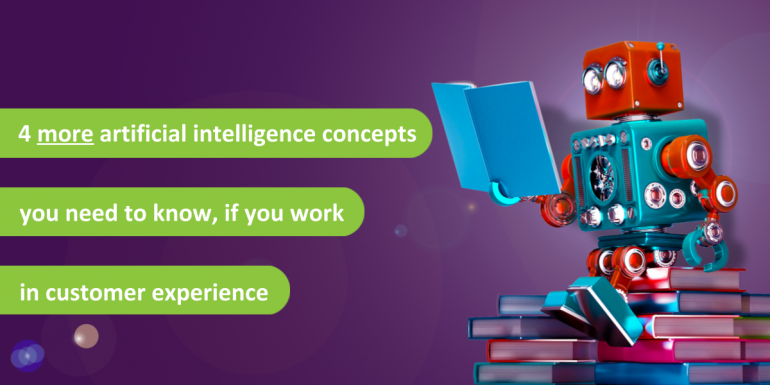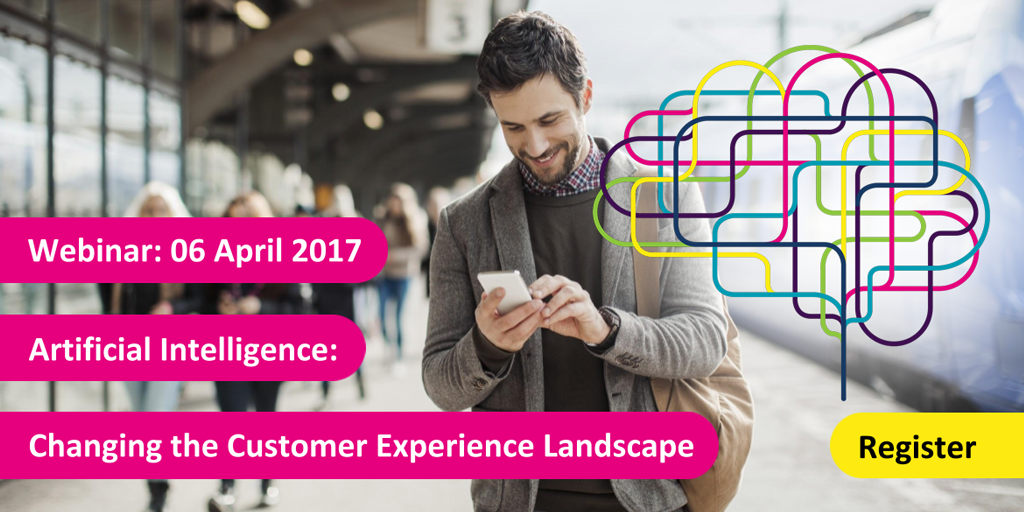4 more artificial intelligence concepts you need to know to deliver improved CX

So far in this three part series covering artificial intelligence (AI) in customer experience I’ve explained the difference between bots and chatbots and some of the key concepts that you need to know about. In this third part I’ll finish my list of terms and describe how they can deliver an improved customer experience:
1. Neural networks
Neural networks are an artificial intelligence model that reproduces how the brain works. Comprised of neural layers and webs they are related to machine learning, and while useful in certain domains they are very specific and complex to create. Consequently they are not flexible or quick enough to create, to help brands with customer experience.
2. Pattern Matching
This is a very simple AI technique that compares a query with a database of answers, such as searching a webpage for a specific keyword. This clearly does not go far enough for customer experience as it does not take into account the context or meaning of a query and is likely to provide either too many inaccurate responses or too few useful answers.
3. Cognitive intelligence
Cognition is the “mental action or process of learning through thought and senses”, and NLP is a subset of cognition. A cognitive system, such as Eptica’s, uses techniques such as NLP to understand a query and fetch the best available answer from a self-learning knowledge base. This means that consumers receive a personal response, based on exactly what they asked, improving the experience and driving greater efficiency.
4. Augmented agents
The majority of customer queries received today through digital channels are relatively routine and simple to answer using NLP based artificial intelligence. For example, queries such as “What is your returns policy?”, or “How do I change my address?” In these cases consumers want a fast, accurate and consistent answer – and NLP can deliver that automatically without the need for human involvement.
However, at the same time consumers often have complex queries that currently cannot be handled by artificial intelligence alone, or where they want the reassurance of communicating with a human. That’s where the concept of augmented agents comes in, combining artificial intelligence with human intervention. Simple customer queries are answered automatically while more complex ones are forwarded to the best available agent, who is armed with information and templates automatically provided from the knowledge base. Agents can then focus on listening to customers and engaging in meaningful conversations with them. This ensures that the customer experience is seamless and personalized, whatever the complexity of the conversation.
Artificial intelligence offers real advantages to brands looking to better engage with their customers. It improves the speed and accuracy of answers, while boosting the productivity of agents by providing them with faster access to the information they need to respond. More importantly it improves the quality of the conversations that brands have with their customers, enabling them to build stronger relationships that last longer and add more value to both sides.
We invite you to join our upcoming webinar to find out how conversational & collaborative solutions powered by AI can enhance digital CX, enabling companies to put customer experience at the heart of their strategy and create value across all operations:








Comments